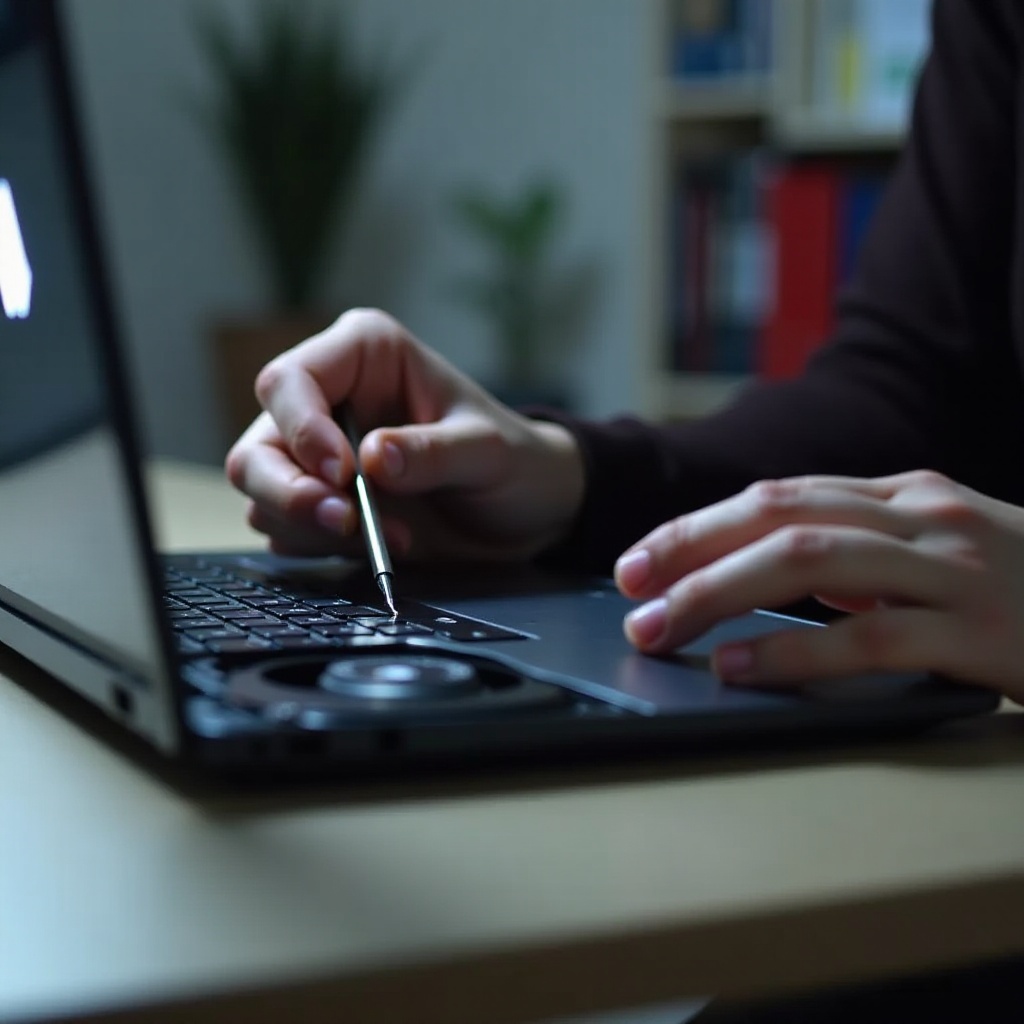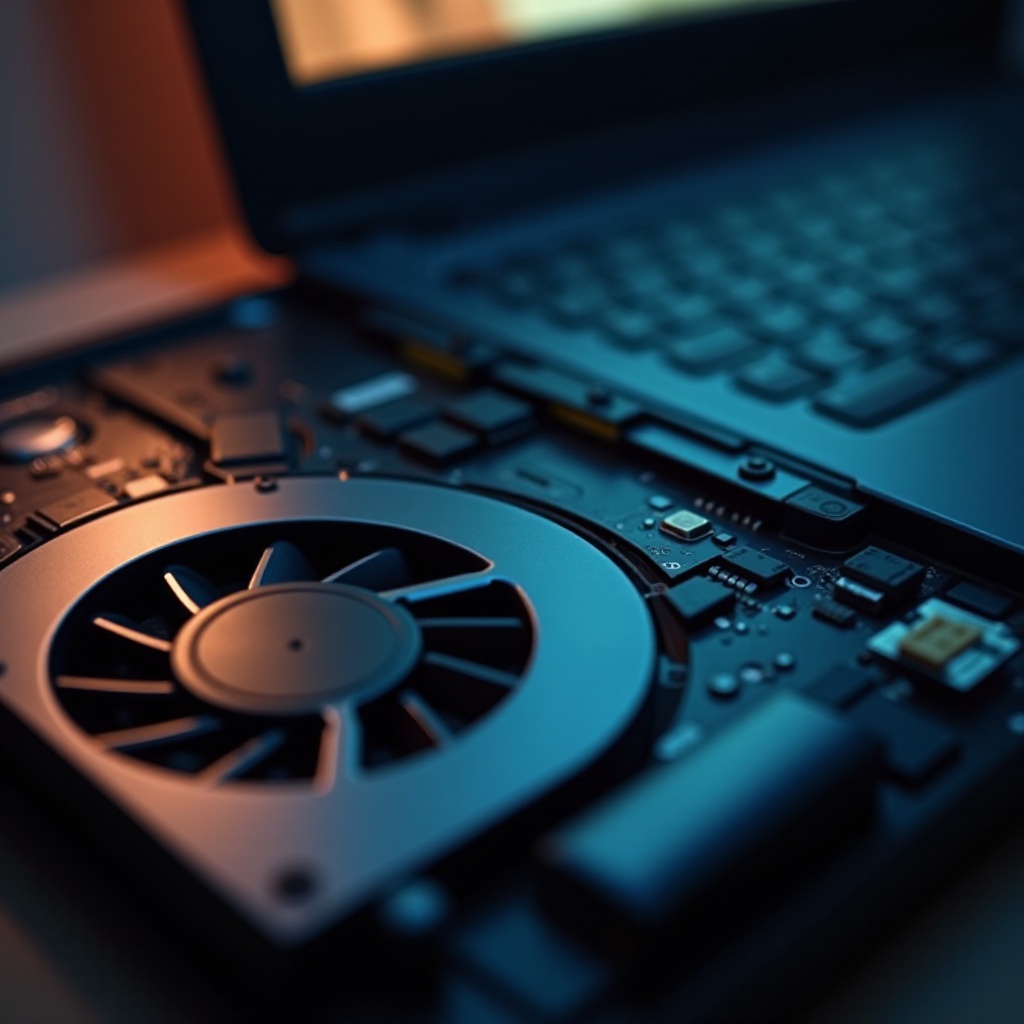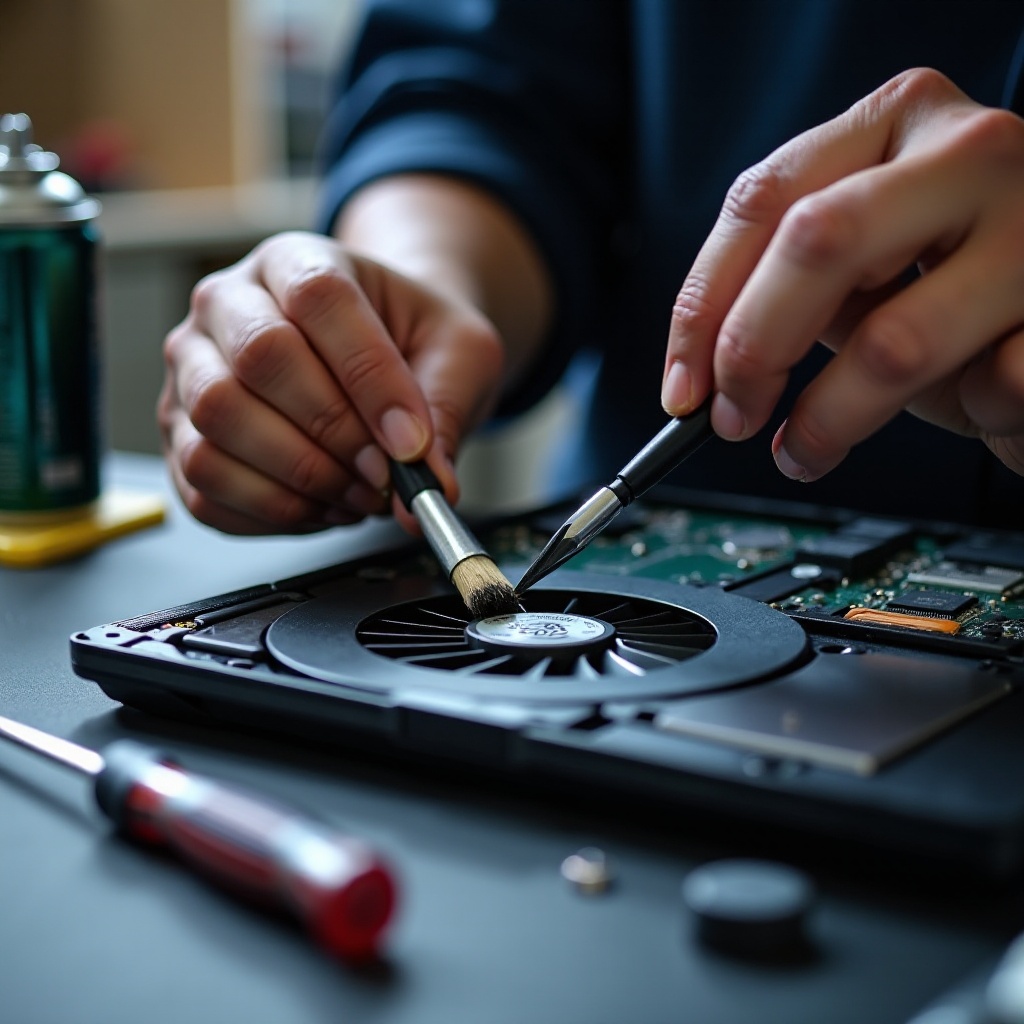Introduction
A buzzing laptop fan can be more than just annoying; it may signify underlying issues that could impact your device's performance. Learning how to identify and address these problems can save you from bigger headaches down the road. Let’s delve into the common causes of a buzzing laptop fan and practical solutions to fix the noise.

Common Causes of a Buzzing Laptop Fan
Several factors can make your laptop fan produce that troubling buzzing sound.
Dust and Debris Accumulation
Over time, dust and debris can accumulate in your laptop's cooling system. This build-up obstructs airflow, causing the fan to work harder and produce a buzzing noise.
Worn Out Bearings
The fan's bearings can wear out due to extended use. When this happens, the movement becomes less smooth, and the fan may start making buzzing or grinding noises.
Loose or Damaged Fan Blades
Sometimes the fan blades become loose or even get damaged. This can lead to uneven spinning and vibrating, resulting in a buzzing noise.
High CPU or GPU Usage
When your laptop's CPU or GPU is under heavy load, the fan speeds up to cool the internal components. This increased speed can lead to a buzzing noise, especially if the fan or cooling system is not in optimal condition.
Understanding these causes can help you narrow down the problem. The next step is to accurately diagnose the issue to decide the most appropriate solution.

Diagnosing the Buzzing Noise
Identifying the source of the buzzing noise is critical in determining the right fix. Here are two effective ways to diagnose the problem:
Running Hardware Diagnostics
Many laptops come with built-in diagnostic tools. Running these tools can help pinpoint hardware issues, including fan problems. Follow your laptop manufacturer's instructions to access and run these diagnostics.
Monitoring CPU and GPU Performance
Use software like HWMonitor or SpeedFan to check your CPU and GPU temperatures and performance. These tools can help you see if overheating is causing the fan to work harder than necessary. If the temperatures are consistently high, it may indicate that the cooling system needs attention.
With a clear understanding of the issue, you can move on to implementing the appropriate solutions.
Solutions to Fix the Buzzing Noise
Once you have diagnosed the cause, it’s time to tackle the buzzing noise. Here are some effective solutions:
Cleaning the Fan and Vents
- Turn off and unplug your laptop.
- Use a can of compressed air to blow out the vents and any visible dust.
- If you’re comfortable, open up the laptop to access the fan directly for a thorough cleaning.
Replacing the Laptop Fan
If cleaning doesn't help, the fan may need replacing.1. Purchase a compatible replacement fan.2. Follow your laptop’s manual or an online guide to replace the old fan with the new one.
Using a Cooling Pad
A cooling pad can help reduce the workload on your internal fan. Place your laptop on a high-quality cooling pad to enhance airflow and keep temperatures down.
Updating or Reinstalling Drivers
Outdated or corrupt drivers can also cause fan issues.1. Visit your laptop manufacturer’s website.2. Download and install the latest drivers for your system.
Successfully implementing these solutions should reduce or eliminate the buzzing noise. However, taking steps to prevent such issues from reoccurring is also important.
Preventative Maintenance
Maintaining your laptop proactively is the best way to keep it running smoothly and quietly. Here are some key tips:
Regular Cleaning
Regularly clean your laptop’s fan and vents using compressed air to prevent dust build-up.
Using the Laptop on Hard, Flat Surfaces
Use your laptop on hard, flat surfaces to ensure optimal airflow through the vents.
Managing Performance to Reduce Overheating
- Adjust your laptop's power settings to balance performance and thermal output.
- Use software to manage CPU and GPU performance, ensuring the laptop doesn’t overheat and strain the cooling system.
By following these maintenance steps, you can extend the life of your laptop's fan and mitigate the chances of future buzzing noises.

Conclusion
Addressing a noisy laptop fan promptly can protect your hardware from potential damage and enhance your user experience. Regular cleaning, smart usage habits, and timely hardware and software updates are key to preventing fan issues. If your fan continues buzzing despite these efforts, consulting a professional may be the best course of action.
Frequently Asked Questions
Can I fix a noisy laptop fan myself?
Yes, you can fix many laptop fan issues yourself, such as cleaning dust and debris, replacing the fan, and updating drivers. Always consult your laptop's manual or trusted online resources for guidance.
How often should I clean my laptop fan?
It’s recommended to clean your laptop fan every 3-6 months, depending on usage and the environment in which you use the laptop.
When should I replace my laptop fan?
If cleaning and other simple fixes don’t resolve the buzzing noise, or if the fan shows signs of physical wear and tear, it’s time to replace the fan. Consult a professional if you are unsure.
